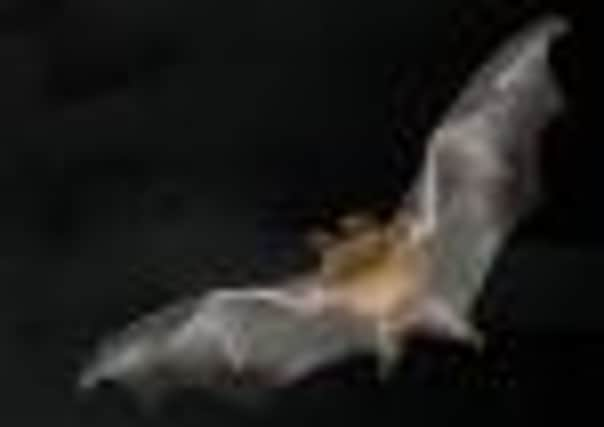Close call for bats as phone mast threatens flight path


The proposals from O2 and Vodaphone would see a 15- metre-high mast developed on a site at Clark Road, on the edge of the Trinity Conservation Area.
The companies claim the mast is needed there to boost the 3G signal for local smart-phone users.
Advertisement
Hide AdAdvertisement
Hide AdBut after residents raised concerns about the effect of the development on local trees, council officials have recommended the mast be scrapped, over fears about the effect it could have on nesting bats.


The recommendation was put forward as a section of trees next to where the mast was to be sited are listed as an “important linear route” for local wildlife, such as owls and bats.
Bats are a species protected by European legislation, meaning any development which could have a detrimental impact on them requires a detailed bat survey.
However the council has said that, as the proposals are to be refused, this will not be necessary.
Advertisement
Hide AdAdvertisement
Hide AdO2 had already been refused planning permission for a 14.8-metre tower in an almost identical location, over concerns about its effect on the conservation area and its impact on the health of local trees.


The new application, for a 15-metre mast, would see it given a timber effect to create the appearance of a very tall telegraph pole.
O2 carried out an extensive survey of sites in the area, and says this location provides the best possible coverage for the area.
Residents have again objected to the proposal, with claims the “monstrous” mast would ruin the local skyline and affect the beauty of the Trinity Conservation area, particularly the entrance to the cycle path which it would sit next to.
Malcolm Chisholm MSP also has reservations.
Advertisement
Hide AdAdvertisement
Hide AdHe said: “There are widespread concerns in the area about this plot, since it seems that O2 currently have a mobile phone base station on the Granton Telephone Exchange and it is not clear why they should not remain there should they choose to do so.
“The site chosen by O2 is on the boundary of the Trinity Conservation area and there are serious concerns that a high mast will damage the tree and roof line of this important conservation area.”
Despite all these concerns, it is the potential effect on wildlife that has swayed council officials to recommend refusal of the proposal.
John Bury, the council’s head of planning, said: “The nearby trees and the local nature conservation site represent an important linear route for natural heritage.
Advertisement
Hide AdAdvertisement
Hide Ad“The proposals will adversely affect the health of mature tree species and may have a detrimental impact upon bats, which are a protected species subject to European directives.”
Councillors are expected to refuse the application when they meet tomorrow.